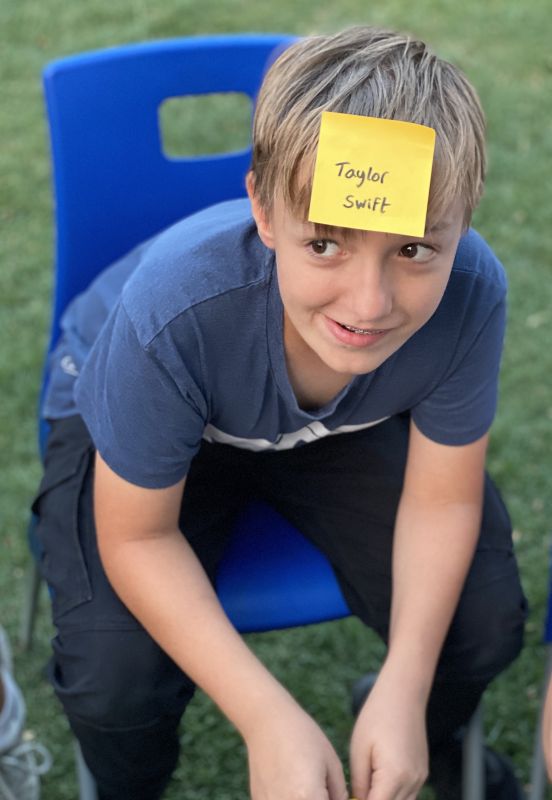Homesickness:
advice for parents
Advice about missing home
For most children, summer at ECS will be an enjoyable and rewarding experience. Our pupils improve their English, have fun, make new friends, develop new skills and increase their self-confidence. And In 2022, 100% of parents and guardians said their child enjoyed their stay.
But it is normal that some children will feel homesick at some point during their stay.
There are a number of things we can all do as parents, carers and the ECS team to help avoid homesickness and care for children and teens effectively if they do experience it. You can help prepare your child with some nights away from home before they spend summer with us and by staying in contact with them during their stay, such as talking on the phone once a week.
The experience of homesickness is normal and the process of overcoming it can help young people build resilience, strength and confidence.
What is homesickness?
Homesickness is a form of anxiety caused by being away from the routines and familiar environment of home and family.
Most people suffer from homesickness at some point in their lives – at school, at university or even on business trips. The feelings of sadness and distress can vary in severity and can show themselves in different ways.
Who experiences homesickness?
It’s not easy to predict who will experience homesickness - anyone can experience homesickness at any age.
In our experience at ECS, younger children are more likely to be homesick but also more likely to overcome it quickly. Older children are less likely to be homesick but sometimes find it harder to overcome it if they do.
Homesickness is unpredictable and you may be surprised to find that your child adjusts to life at ECS without a problem, or that they experience homesickness.
How to help avoid homesickness
We do everything we can to help children and teens to settle in and have a happy, healthy time at our English language summer school.
Shortly after arrival, we will give everyone a tour of the school, so they are familiar with their new environment. They will meet the friendly ECS team and we make sure everyone understands the timetable, routines and rules.
With lots of fun activities, games and social ice-breakers, everyone will soon feel comfortable with each other and begin to make friends. And by providing warm, friendly adult support, your child will have plenty support if they need it.
These steps all help our pupils feel comfortable and confident in the ECS environment. There is a number of things you can do before and during the course to support your child too:
Prepare your child to spend time away
If your child is not used to spending time away from home, especially overnight, try to provide some opportunities to do so before the course. Visits to family and friends, ideally for more than one night can really help prepare them for spending their summer at ECS.
Bedtimes at ECS may be different to what your child is used to. If possible, try to get your child into a new time routine in the days before coming to the school. This will help avoid the possibility of them lying awake because bedtime is earlier, triggering feelings of loneliness or homesickness.
Remember: children travelling from different time zones will take a few days for their body to adapt to the new eating and sleeping times.
Talk about the course and how it can feel to be away
Unfamiliar routines and environment are a primary cause of homesickness. It can therefore be very helpful to talk to your child about the course so they are already familiar with what the ECS summer camp will be like before they arrive.
There is a lot of information about accommodation, lessons, trips, sports and our social programme, as well as example daily and weekly timetables, across the website that you can look at together.
Talk to your child about how they might feel while they are away. Recognise that it's normal to miss home but be positive too! It can also help to explain what homesickness might feel like – some children think it means being physically sick. And be sure to tell your child to talk to an adult at ECS, e.g. a house parent, if they feel sad or uncomfortable in any way. They will be able to help.
If you send children together, don’t put responsibility on one child to look after the other. We will provide support for every child. Allow all your children the same freedom to have a good time and make their own friends without having to worry about a younger sibling, for example.
You can also watch videos on our YouTube channel so your child can see ECS and Port Regis before their trip, or follow us on Instagram and Facebook.
Stay positive and lead by example
Try not to treat your child too differently in the days before their trip. Farewell parties and visits from relatives may be well-meaning but can cause anxiety.
Avoid saying things like “we'll all miss you so much while you're gone. It won't be the same here without you”. While this may be true, it might make the child feel guilty. Instead, try to talk about your child’s trip in positive ways: “I’m sure you’re going to have a great time. Take lots of photos and we’ll want to hear all about it when you get back!”
Please do not tell children that they can come home if they don’t like the school. While it is of course possible for pupils to leave early, this is rarely necessary and saying so can lead to a negative attitude and even become a self-fulfilling prophecy.
Try to have an alternative to “goodbye” when it is time to leave your child. A reference to the next time of contact is better: “have fun and we’ll see you soon.” Depart swiftly when you have decided to go and put on a brave face. It's not uncommon for children to be tearful when it comes to saying goodbye but are fine when you have gone.
Look after yourself too!
Remember – being away might be more upsetting for you than your child.
So, having made your decision and understanding all the benefits of summer at ECS, spend some time thinking about how you will cope.
Perhaps take the opportunity to spend more time with another child or loved-one. Or rediscover being child free!
For a few weeks in the right place, your child can survive without you. They will be happy, so make sure you are too!
Stay connected but give your child space too
In our experience, children do best when they know you are available, but do not receive constant reminders of your absence - such as daily phone calls.
We recommend no more than two calls per week at an agreed time. Keeping to an arranged time builds certainty and structure, which helps reduce homesickness. Text messages are also a great way to keep in contact without upsetting your child with the sound of your voice.
If you want to travel to the UK with your child and stay while they are at camp, take the opportunity to explore the country. Visit London, the Lake District, Cornwall or Scotland, where your child knows you cannot see them on demand. If you want to visit during the course, please allow at least one week after your child arrives and don’t be surprised if your child is upset when you leave.
It can be better to have smaller reminders of home. Consider packing a photo of friends, family or pets to help your child feel connected. A soft toy can also be comforting and familiar sight.
You can also ask friends and relatives to send emails, letters or postcards as a fun surprise during their stay. Note that posted items can take longer to arrive than you expect: it’s best not to tell your child that you have sent something to avoid anxiety if it is delayed. Just wait for it to arrive as a nice surprise! Please do not send food.
If your child brings a mobile phone, please make sure it will work in the UK.
For children under 11, phones are kept by the house parents and may be used during their leisure time (see our daily timetable) and all day on excursions.
Pupils aged 11+ can keep their phones but must not use them (or any other electronic gadgets) during lessons or organised activities.
When a child is homesick
If a child is homesick, our experienced and caring staff will do everything they can to reassure and comfort them, letting them know that it is normal and shifting their focus to what they are excited about on the UK summer camp.
We will talk to you, the child, other pupils and staff to understand how they are feeling and what they need, as well as to make sure there are no other problems. With everyone informed, our team will be able to provide friendly, professional support to help them to overcome their homesickness.
And here's how you can support that process:
Getting involved and making new friends
All of the activities on our summer course - working together, learning new things, being active and meeting new people - are great at helping lift feelings of homesickness.
Initial homesickness usually stops as soon as they make a friend on the course. So we ask you to help us encourage your child to join in the activities and talk to the other children so they can start focusing on fun and new friends.
Remind yourself and your child of all the good reasons for attending English Country Schools.
Remember that they are safe in a beautiful school in the English countryside, surrounded by caring, friendly people who want your child to be happy and make a success of their stay. With your help, we can achieve this.
Communications
If your child is homesick and calls you more often than you feel is good for them, remind them of your telephone agreement (see above) and arrange a call in a few days' time. If this is difficult, you can keep in contact with text messages between calls.
A homesick child may write or say things like: “everyone hates me”, “I can’t eat anything”, “I lie awake all night” or “I hate it here”. They are expressing that they are upset and may say almost anything to convince you of the need to leave. If your child expresses worries or concerns, please contact the school to find out how your child really is and to make sure we are aware that they are feeling homesick.
If your child is upset, please contact us so we can provide extra support if needed and so we can feedback on their behaviour in classes and activities.
Positive focus
Encouraging children to have a positive focus on the course can be a great help. Ask them what they liked most about the day and what they are looking forward to tomorrow.
For older pupils, keeping a diary or a gratitude journal, where you list three things you’re grateful for and three things you’re looking forward to, can be a very effective tool for mental wellbeing.
Leaving the course early
It is very rare for a child to leave English Country Schools early. But occasionally, it is the right decision for a child's happiness and wellbeing. This should be considered a last resort. In our experience only about one in two hundred pupils leave early.
Remember that a child’s long-term happiness is best served by learning to overcome problems and not give in too easily. But if nothing helps, leaving the course early should not be considered a failure and everyone is welcome and encouraged to return to ECS in future.
Please note that homesickness is not covered by our insurance so there will be no refund of fees.




